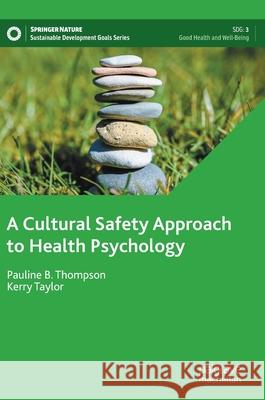A Cultural Safety Approach to Health Psychology » książka
topmenu
A Cultural Safety Approach to Health Psychology
ISBN-13: 9783030768485 / Angielski / Twarda / 2021 / 310 str.
Kategorie:
Kategorie BISAC:
Wydawca:
Palgrave MacMillan
Seria wydawnicza:
Język:
Angielski
ISBN-13:
9783030768485
Rok wydania:
2021
Wydanie:
2021
Numer serii:
000812045
Ilość stron:
310
Waga:
0.55 kg
Wymiary:
21.01 x 14.81 x 2.06
Oprawa:
Twarda
Wolumenów:
01
Dodatkowe informacje:
Wydanie ilustrowane











